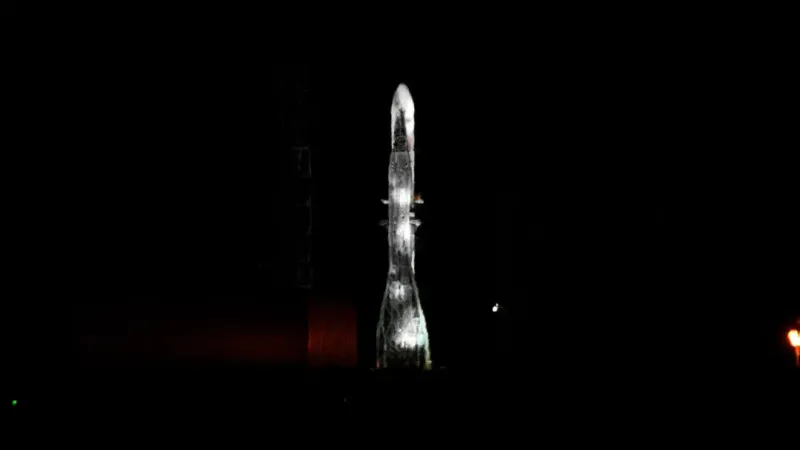China Launches Three Astronauts to Tiangong Space Station
China successfully launched three taikonauts (astronauts) to the Tiangong space station on Wednesday. The six-month Shenzhou-19 mission took off atop a Long March-2F rocket from the Jiuquan Satellite Launch Center in northwestern China at 4:27 am Beijing time....
0:00
/1861
Facts
- China successfully launched three taikonauts (astronauts) to the Tiangong space station on Wednesday. The six-month Shenzhou-19 mission took off atop a Long March-2F rocket from the Jiuquan Satellite Launch Center in northwestern China at 4:27 am Beijing time.[1][2]
- The crew includes China's first female space engineer Wang Haoze, pilot Cai Xuzhe, and former air force pilot Song Lingdong. According to Chinese state media, this is China's 'youngest crew' to go to space.[3][4]
- Wang Haoze, 34, is an expert in nuclear-powered rocket technology, unlike China's first two female astronauts, Liu Yang and Wang Yaping, who were air force pilots. She has worked on the design and development of unconventional rocket engines for future deep-space missions.[2][5]
- The astronauts entered the space station and began the handover process with another astronaut trio. The new team's scheduled experiments aim to place astronauts on the moon by 2030 and eventually set up a lunar base.[6][7]
- They will carry out '86 space sci-tech experiments,' including testing lunar-soil bricks in high-radiation and low-gravity conditions, as well as conducting public outreach, education, and payload experiments to improve space station operational efficiency.[5][1]
- The previous Shenzhou 18 crew, which reached Tiangong in April, is set to return to Earth on Nov. 3. China built its own space station after it was reportedly excluded from the International Space Station over the alleged military control of its space program.[4][6]
Sources: [1]Global Times, [2]South China Morning Post, [3]BBC News, [4]Space.com, [5]Dw.Com, [6]Dtnext and [7]Thesun.My.
Narratives
- Pro-China narrative, as provided by Chinadaily.com.cn and Chinadaily.com.cn. China's space program stands as a beacon of human achievement and scientific progress, which was brilliantly demonstrated by the Shenzhou 19 mission's successful launch. The program emphasizes diversity and innovation, as well as a blend of seasoned and youthful personnel. With eight successful crewed missions to Tiangong and plans for lunar exploration, China's space endeavors inspire a new generation while contributing to our shared understanding of the cosmos.
- Anti-China narrative, as provided by The Hill and BBC News. China's rapidly advancing space program is geared toward achieving military dominance in orbit and on Earth, aiming to disable US and allied space capabilities if desired. Alongside increasing its orbital presence and surveillance capabilities, Beijing is developing counter-space weapons, including anti-satellite tools, that threaten American systems. Strict security around its space operations reflects the broader rivalry with the West, as China pushes to establish its influence in space and beyond.







